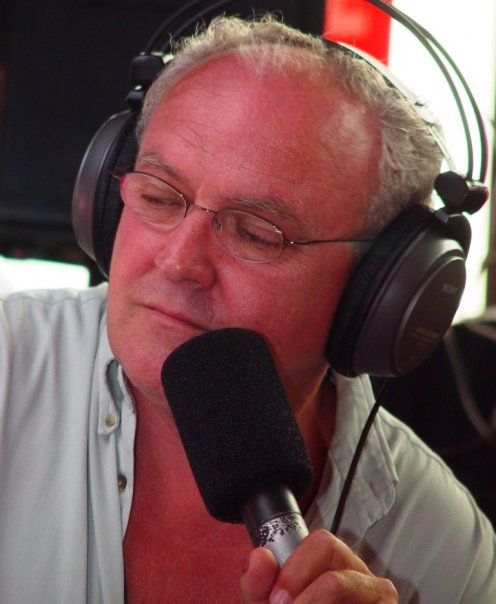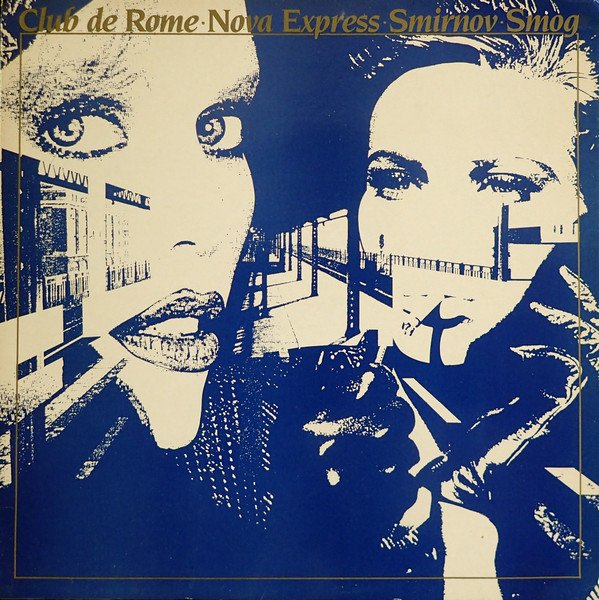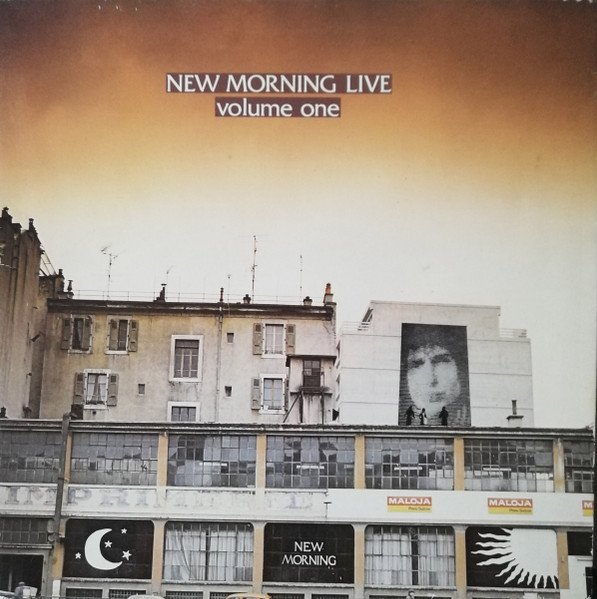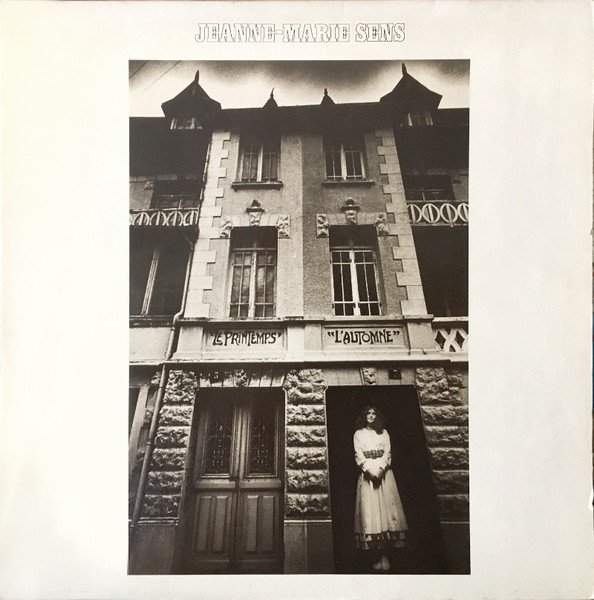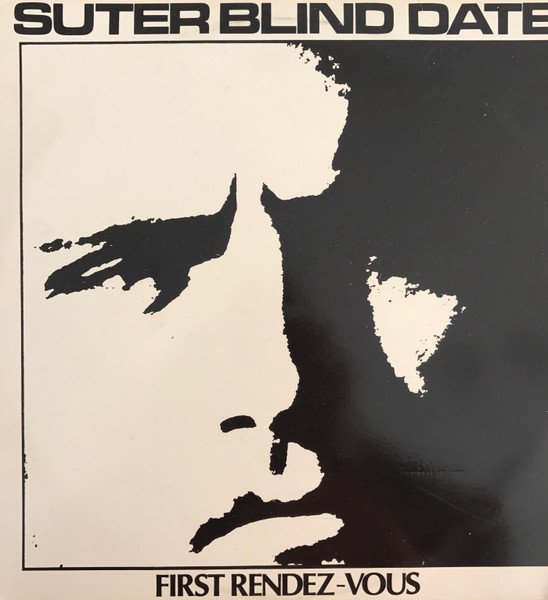FM 2-3.
A chat with Gérard Suter.
Two years ago I had released the works of Roger Baudet, a swiss composer who was mainly active throughout the eighties and nineties in Romandy, the French part of Switzerland. When I was talking with him about local inspirations of the scene at the time, a reoccurring name seemed to be mentionend which was Gérard Suter, a man who was behind the microphone of the RTS (Broadcast center of Romandy) with experience ranging in the decades with his show Démarge. The genesis of Démarge came from Isvan Zelenka, the person who was once responsible for contemporary music on the RTS. Démarge started from a change of direction from the cultural programming of the Swiss Broadcast centre, which was then run by Félix Bollman who was passionate about everything that was considered “new” in radio. Félix gathered a team of three people, Gérard included, and explained the following premise; that from 22h40 to Midnight there would be a free slot with open ended calls available throughout the whole evening. Since they were given a “carte blanche” on their programming, this was described by Gérard as a challenge in itself due to the fact that absolute liberty can also mean an absence of it. Having access to the latest technology both audio and visual, to be used at their leisure, allowed them to be totally independent in their own little creative bubble, creating a somewhat unorthodox style of radio broadcasting for its time.
An inspiring style of presentation and a voice that melts like butter, I got a chance to catch up with Gérard and talk about his past experiences of spending decades in the RTS studios. Too many shows to mention with edgy topics (especially in rather conservative Switzerland at the time), we opted to do something different for this month’s broadcast. A sort of of mixtape comprising of snippets of handpicked footage from hours of broadcasts of his shows from the eighties to early nineties, kindly provided from the RTS’s archives. The result is a sort of a fever dream of what Démarge could have been, reimagined from an outsider’s perspective based on the descriptions made by Gérard. Most of the music featured is actually composed by himself, ranging from experimental sound collages he did in the RTS studios, synthesiser experiments or pitch down field recordings from the streets of Geneva. Moreso, there is also music from bands that Gérard was a part of as well as others acts he championed on his show previously. A bit of a gurgling mess at times, anecdotal twists at others, relieved with snippets of musique concrète and pop music, you be the judge of its outcome. As always, the chat we had titled “FM 2-3” features topics ranging from the genesis of Démarge, his favourite moments on shows and the time he managed to get the Hell’s Angels to act as his personal security.
The premise of our meeting is through Roger Baudet. When I released his works back in 2021, your name and radio show came up in our talks. How did you guys meet?
Roger came a couple of times to the studio to promote his debut album “Rêveries D’un Père Tranquille”. This was in 1985. Besides that, I saw him occasionally due to our common affiliation with the same people. At the time he was doing compositions with the Mega Wave Orchestra, a sort of jazz collective with elements of synth pop based in Geneva, led by Christian Oestreicher whom I knew. Other than that, I do not know Roger so much.
You yourself dabble in music?
I do actually, especially these days. I rehearse with various bands focussing on the guitar and bass or otherwise currently working on soundtracks. I got asked by this Swiss company (ADN Dialect) Vevey-based company to do a soundtrack for an experimental dance performance they mandated me on.
Back in the day, I was really interested in electronic music because the technology used to make such sounds could be very inaccessible due to its physical constraints and pricing. But working at the RTS gave me access to such machinery where I enjoyed experimenting around studio quality soundboards. For instance, the studio where Démarge broadcasted from had a really big mixing board, a 24 channel Harrison mixer. The crème de la crème. Synthesisers were a bit out of reach for me in terms of comprehension, so I started this project where I would only compose with this gigantic mixing board. I usually rather work on commissioned projects such as these because I like composing with an end goal in mind. Anyways, the idea was to use recordings that I made from the streets of Geneva and then shape them to the point where you could not recognise them from their original source anymore. Busses breaking, street chatters, honks, waves from the lake... I would stretch, pitch, reverse the audio, do all those things with some early day samplers to give the impression they were from synthesisers, when really they were just modified street recordings.
Can you tell me about yourself and of your upbringing?
I was born in Lisbon from a Portuguese mother and a Swiss father, the latter being a diplomat which allowed us to travel around such as Tangier before finally relocating to Switzerland. After an unsuccessful run of studies, I was searching for direction in my life by doing odd jobs left and right.
My path to radio was influenced by having one day this journalist pick me up via auto stop. The journalist was telling me about his affiliation with radio and told me I should perhaps consider a career path in this domain. Since at the time I was a substitute teacher, I thought it would be a nice idea to make my students visit/experience the radio station as a class outing through this person’s extended invitation. Soon afterwards, I noticed that the radio (called Radio Swiss Romande at the time) was looking for technical staff. By the age of 22, I took a chance which landed me a job as a broadcasting sound engineer on the RTS (Radio Télévision Suisse - National broadcasting network for the French speaking part of Switzerland). This was in 1972. I eventually settled down for production and booking as my career mainly thrived in this sector. We had a lot of liberty in creative choice. The role of radio producer was very highly regarded. Meaning you had a lot of opportunities in your program curation, whether it being topics, guests or staff.
How did Démarge come to?
The studio at the time was occupied by the television production company called “Studio Un” which was the biggest television studio at the time, possibly Europe. You can imagine we had access to the latest technology, both audio and visual at our leisure, and allowed us to be totally independent in our own little creative bubble.
Myself and my team came up with a mandate, that everything that was not covered currently on the broadcasting centre, we would do it, and stuff we will eventually cover or that has already been covered, we will do it differently. This resulted and grew into a team of 15 people gathering once a week to discuss what would be featured in our daily broadcasts. I volunteered to become head of this channel because the other two did not want that workload, understandably. So they remained as producers. But the work was immense as we covered a lot of things, such as having guests specialising in philosophy, modern music, dance, literature… sometimes it was a one off show.
Other topics would be delegated as series but since it was every night, almost each person of the team would research a topic that could be used for the show. People would stay for a month, 6 months and so on. People would do a topic or more for the duration of three shows for example and would part ways, usually very amicably. Most people who came in and out of the team came to work because of the high reputation of the show, both for its high quality in broadcast but also on the other side a lot of people did not stay long due to its impressive workload and thus potential experience. This recurring turnaround was actually used to our advantage, since that meant we always had fresh ideas , themes and content to broadcast
If you were to describe Démarge in your own words, how would you do so?
Liberty, research, Never easy. Demanding.. All elements to present to the audience a leftield theme, listenable and accessible to follow for the average person.
Did you have any memorable shows you wish to talk about?
We did a five part series on the theme of pornography. It was interesting because back in the early eighties, having such a subject being broadcasted on national level in quite conservative Switzerland at the time was quite a feat. After our first show, our studio manager came to us a few times mentioning that listeners have been calling in to complain about the content we were broadcasting. But this was settled down after they saw we were not trying to promote smut, but a critical analysis of pornographic culture on an evolving basis. Although we were talking about pornographic culture from an educational standpoint, whether between ourselves or with guests in the likes of actresses of that sector, it was sporadically difficult to keep your cool and a straight face due to its content. You can imagine that it could feel a little hot under the collar at times. We did a lot of pretty controversial topics, series on politics or other totally unrelated subjects like cars…
Really, Démarge evolved and thrived as a radio show because there were so many innovators, whether guests or contributors that took part in it. We’d get invited to major festivals like the Montreux Jazz to have our stand because our opinion was so valued and recognised in the French speaking part of Switzerland.
Another anecdote comes to mind, which at the time was not fun to experience but does make a memorable story to tell decades later. We were co-hosting a show with this festival called La Batie which at the time would go on in the early hours of the morning due to the heavy workload and roster of guests. We were featuring this band one day called Crime and the City Solutions, from Australia. This was in the early eighties and although I would not describe this band as Metal, they definitely had something sinister about their music, something dark and heavy. The night in question, a little bit before the band was scheduled for a talk and a performance on the show, the prompt/assistant came to inform us that the band was going to be accompanied by their entourage. Little did we know, the entourage turned out to be the Hells Angels, who were apparently very big fans of this band and were escorting them throughout their European tour. Because of the Hells Angels reputation, the technical crew started to get very nervous, concerned that the biker gang were going to start trouble and possibly destroy the studio. It was an open-studio that day so we couldn’t exactly refuse them entry. The audience came, sat around the floor and soon after a successful soundcheck, the walls started to vibrate. It was due to the engines of a dozen Harley Davidson pulling up in the area. As the MC members started to pour in the studio, you could definitely feel a shift in atmosphere. Serious, mean looking and intimidating, as you could imagine from this notorious club. Especially then, the rumours and stories of the crime involvement of this club were prominent in mainstream media, so everybody knew who they were.
Because of this tension, as a means to break the ice, I decided to approach them and to inquire who was the leader of the group. After pointing me to him, I confronted the leader, explaining that they are welcome and hope they enjoy the show. However, although this was a peaceful event for people to enjoy music, the studio failed to provide security. So I explained to him the situation, and asked if he would be willing to lend some of his crew to act as security for the event. Since they were fans of the Crime and the City Solutions, they were very happy to oblige. The rest of the night, there was absolutely no drama, no harm, not even a broken glass on the floor. Everyone behaved well and the band could perform completely hassle free. I wish I had footage to show you because it was really a sight to see.
I really liked musical events, especially when they were broadcasted live. Another memorable moment perhaps that comes to mind is with Catherine Zarcate. She was performing with another musician and was programmed from 22:30-6:00. The theme of the night was story telling, an evening of tales. So during this timeframe, she would read texts, tell stories, while the musician behind her improvised on his sitar or organs. I don’t remember if the stories she read were hers, or if they were reinterpretations of other people’s works. It’s moments like these that were extremely memorable for me because to hear them was one thing, but to see also the physical expression of these musicians wear on and off throughout their performance is not something you can absorb lightly.
Any memorable local acts at the time that marked you?
A band that comes to mind is the Young Gods. Originally from Fribourg but mainly based in Geneva, they were tremendously innovative for their time period, being some of the first bands to have access to domestic samplers. Back then, you could only have access to samplers in very high end studios because they would cost in the tens of thousands of Swiss Francs. Although functional with their little quirks and characteristics, they were extremely limited in comparison to what samplers could do today. Back then, you could merely get seconds of samplings, so it was more about creative technique in order to innovate your sound. You had to recognise the limitations of such samplers in order to innovate. Actually, Cesare Pizzi, one of the original members, recently went back to this equipment. Partly due to familiarity but also because he knows how to work them best without risking drowning in an ocean of ideas that we get nowadays with the convenience of DAWs. Besides being precursor in adopting such technology, they also sung in their French and English, sometimes simultaneously, which was rather new back in the day.
To be honest, genres in the likes of punk, post-punk and new wave were quite dominant in the Swiss scene back then. Couleur 3 had started and they took a big role in curating such music which was fine by me because I was not so involved with these trending genres at the time.
There was also this punk band that I really liked but could not for the life remember me who they were. Their performance was very memorable though. It was a day where we had a double broadcast, where I got the chance to work with the philharmonic symphony of Lausanne. So we had these two bands facing from one another and they played for each other, absorbing each other's musical talents. It was spectacular to witness two extremes opposing each other since it was two very powerful genres speaking to each other and reciprocating emotions, but in a different fashion, whether musical structure or instruments, the contrasting energy felt complimentary towards each other.
Unfortunately I cannot even provide you with the recordings of this broadcast. On one hand because of licensing issues and on the other, because the footage is probably situated, or rather possibly be buried in a vault comprising thousands of similar recordings. You have to realise that back then, recordings were stored on magnetic tapes. These things can rather easily get lost or damaged. It was not until years later that things were more archived properly when the RTS studios started digitalising them.
With a programme so diverse on Démarge, how did you pick your guests and themes?
When you have a show that works really well, in the beginning, you need to find its artistic direction. You see what works and what doesn’t and through this success people start getting involved based on your past achievements. People then start reaching out to you. You need to have that sense of curatorship in knowing what you wish to achieve, and people will start seeing that. People, such as the audience, the listeners, people would then come to you and pitch their own material for ideas and thus mutually reinforce identity in the show. It goes both ways. It was a period in type where African musicians and ethno beats were high in popularity. Due to Démarge’s eclectic programming, we were some of the first to broadcast such foreign talent in Switzerland. It became quite high in demand. It was not always on a volunteering basis as sometimes I would select people to join the team. A person that comes to mind is the Genevan philosopher Jérôme Deshusses who was absolutely brilliant.
Are there any guests you wished you had booked or that perhaps cancelled last minute? Some sort of regret?
I’m thinking about it but honestly no. I could give it a lot more thought and might find something that could be considered as regret, but to be honest, we covered so much ground during those years through Démarge, had so many guests from various backgrounds, that I feel like we did our job, and very well for that matter. It’s common to have “what if” moments when being insightful, but I am content with what we have achieved. This reflection serves no purpose when thinking if I also could have done something better. Probably. Probably not. Who knows.
Stay up to date and get in touch with Gérard Suter.


